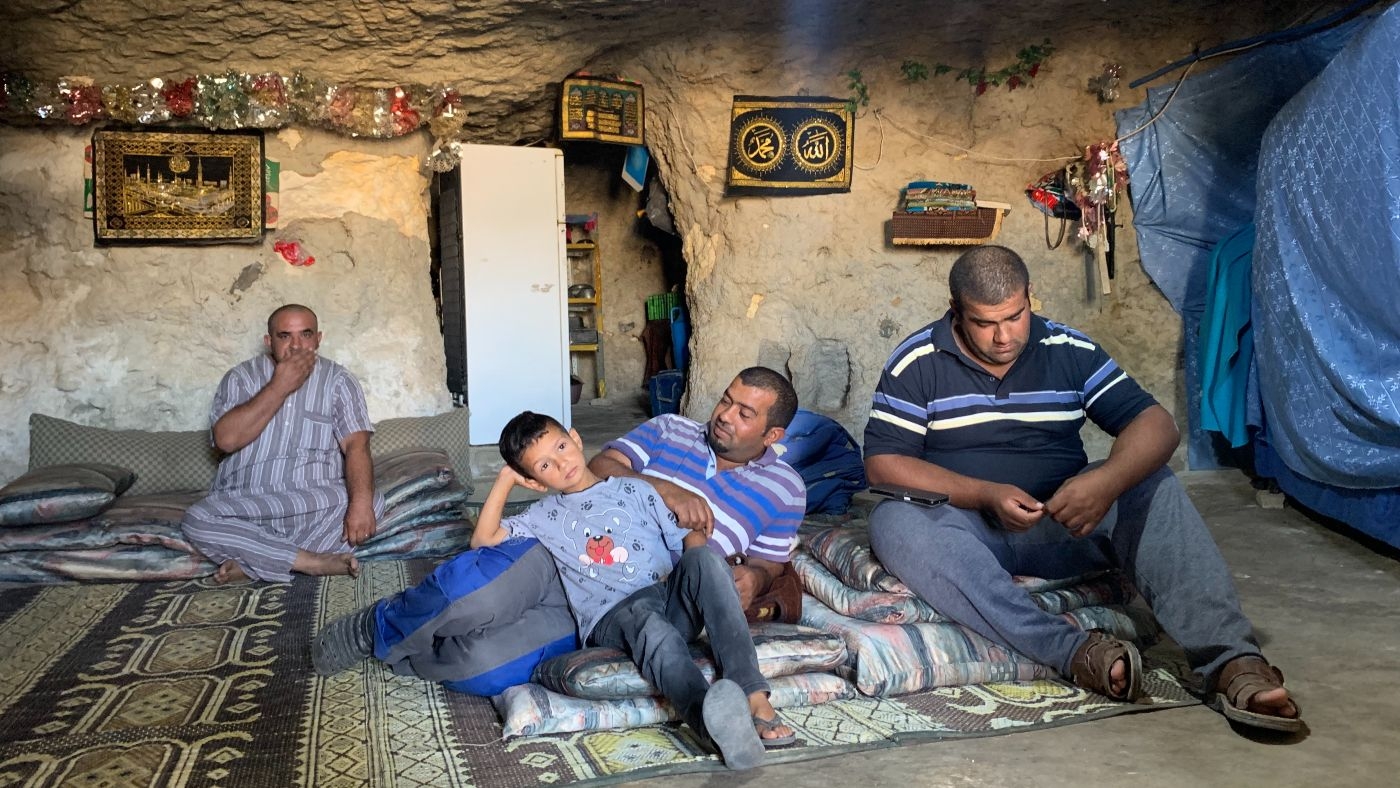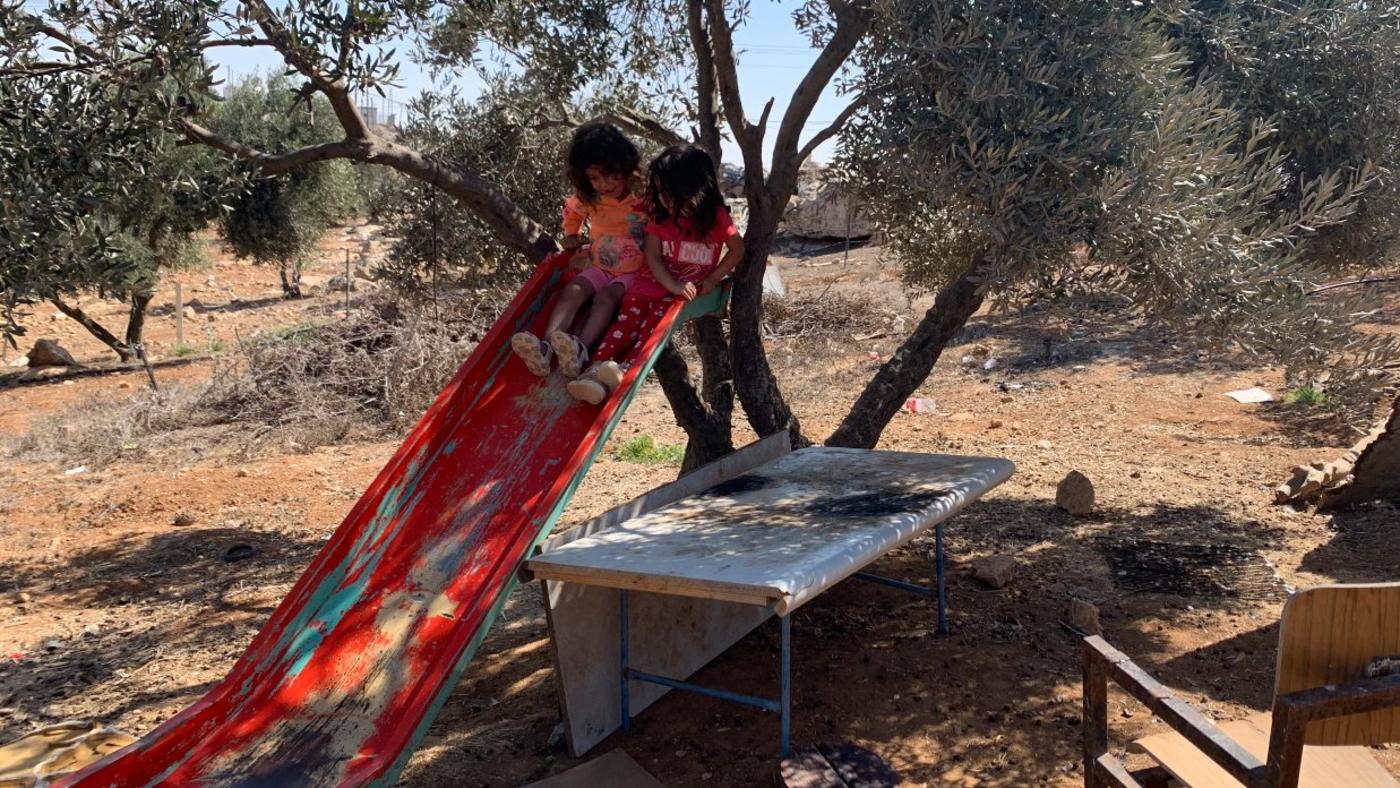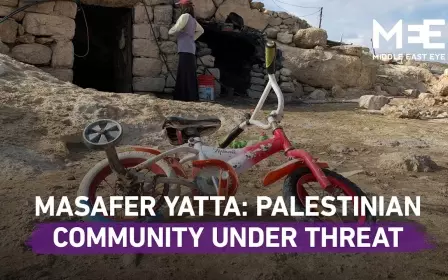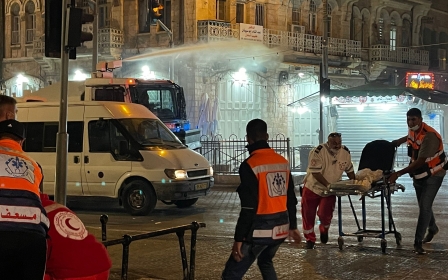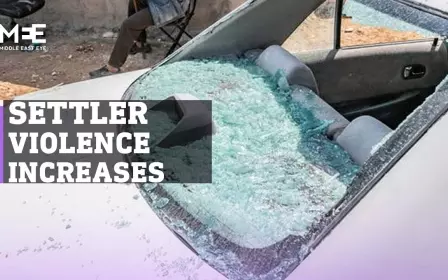Occupation: The forgotten Palestinian village fighting for survival
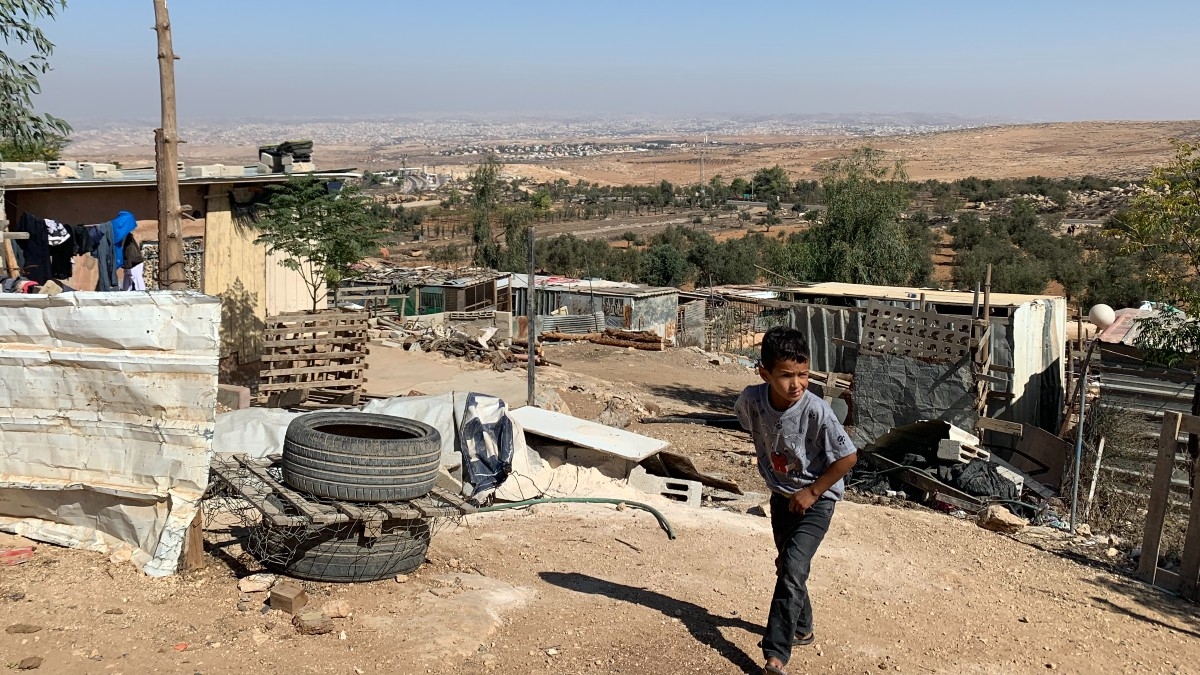
Four-year-old Maria plays with her cousins and brothers on an old dilapidated children’s slide with broken rungs, propped up against a small olive tree at the centre of the southern occupied West Bank village of al-Asayfer.
The Abu Qbeita family was able to bring in the decrepit slide into the Palestinian village several years ago through the Israeli military checkpoint of Metsudot Yehuda, the only way in and out of al-Asayfer.
Meanwhile, the nearby illegal Israeli settlement of Beit Yatir boasts an entirely different scene - a large playground, complete with colourful shades to protect children from the sun.
Lying on 200 dunams (49.5 acres) of land, as documented on registries dating back to the Ottoman empire and official Israeli court registration documents, al-Asayfer is one of over a dozen hamlets that make up the area known as Masafer Yatta, just south of the city of Hebron, and is the only village in the southern West Bank that falls outside the Israeli separation wall.
New MEE newsletter: Jerusalem Dispatch
Sign up to get the latest insights and analysis on Israel-Palestine, alongside Turkey Unpacked and other MEE newsletters
But al-Asayfer cannot be found on any map and is unrecognised by Israeli authorities. Ever since Beit Yatir was established in 1979, the Palestinian villagers have faced constant Israeli efforts to expel them and confiscate their lands.
No one other than the village's 100 inhabitants are allowed through the Metsudot Yehuda checkpoint. And even then, they are subjected to invasive and humiliating searches, as children’s backpacks are turned inside out every morning on their way to school.
Outside visitors are smuggled in through a dangerous and unpaved circuitous back road, as they face the risk of being arrested or shot by the Israeli army or settlement guards.
In recent years, Israeli authorities have gradually closed in on the village, cutting it off from its surroundings while preventing villagers from building homes. But residents of al-Asayfer remain defiantly committed to remaining on their land.
‘We live in a cave or we lose our lands’
“We have been living in this village ever since the time of the British Mandate. My grandfather bought this land, lived on it, and our family grew up here,” Othman Abu Qbeita, a spokesperson for the village, tells Middle East Eye. “We’re going to keep living here and will pass it down to our children and grandchildren.”
The extended Abu Qbeita family largely rely on livestock to make a living. They started out living in a cave at the centre of their 130 dunams (32 acres) of land, and then started building homes as the family grew.
But no sooner had they begun construction that Israeli authorities issued a building moratorium, demolishing the family’s first home in the 1990s and informing them that any further construction would also be subjected to demolition.
Israeli forces have since erected barbed wire fences around the homes in al-Asayfer, in order to separate it from Beit Yatir and prevent the village from expanding.
Othman, 30, tells MEE that most houses are built with tin sheets as a result, yet they are still threatened with demolition, under the pretext that they have been erected without nearly impossible to obtain building permits.
Othman's older brother, 33-year-old Mustafa Mahmoud Abu Qbeita, lives in a 70-square-metres cave with his wife and eight children. He dug out the cave in order to provide shelter for his family after their tin sheet house was demolished.
“The cave is very small and can barely fit us all,” he tells MEE. “Al-Asayfer doesn’t have any proper infrastructure. We buy water on a daily basis and rely on solar panels for electricity.
“But we have no other choice, either we live in a cave or we lose our lands.”
The Abu Qbeita family provided Israeli courts with a blueprint of the village in an attempt to block demolition orders that targeted their homes, but their appeals were denied in August.
“The court recently issued demolition orders for 10 homes,” Othman says. “Each home is a concrete house of 50 square metres, and we are resisting this decision through legal means right until the very end.
“The [demolition] order claims that our houses are built within the blueprint area of the settlement, but we ask: how can this be true, when the whole settlement was built in the 1970s, while we have been living here decades before that?”
Building moratoriums are not the only problems the Abu Qbeita family has to face. Settler attacks against people and property alike are a daily occurrence, while settlement residents confiscate vast swathes of land and attempt to cultivate it as a means of creating new facts on the ground.
Just like every other villager in al-Asayfer, Mustafa says he and his family are threatened with expulsion at any time, and faced with harassment from settlers in an effort to get them to leave.
“The settlers attack our homes every day and throw rocks at us,” he explains. “They make a point to attack at night to scare our children.”
Settler attacks on livestock have also increased recently, ever since the growth of farms in Beit Yatir that rely on the same grazing grounds as the Palestinian villagers.
Four years ago, the Abu Qbeitas were able to prove their ownership of a piece of land surrounded by the settlement and received an Israeli court order in September allowing them access to the land. Yet this didn’t stop settlers from barring them from reaching it.
“On 29 September, we went there with our children, Israeli order in hand, but the settlers attacked us and beat us, threw stones at us, attacked our livestock, and prevented us from reaching our land,” Othman tells MEE, himself having sustained several injuries on his face.
The harassment didn’t stop there. Settlers followed them on horseback to their homes inside the village, making a point to terrify the children.
“We filed a complaint with the Israeli police, demanding that the settlers be held accountable,” Othman says.
“But we were surprised when the settlers themselves launched a complaint against us, which led to our arrest for several hours by Israeli police until we were eventually released, with nothing to show for it.”
Children in the crosshairs
Every morning, 25 children, six of them under the age of six, leave al-Asayfer to go to school in the village of Imneizil, three kilometres away. They pass through the checkpoint, where their school bags are searched, and are then forced to cross the Route 316 highway on foot.
The Palestinian Authority (PA) has officially tasked a bus to transport the children from the far-flung hamlets of Masafer Yatta to their schools. But the Abu Qbeita family says the bus is continuously out of service, forcing parents to take their children to and from school, lest they be forced to cross the dangerous road on their own.
The school bus is itself also subjected to invasive inspections at checkpoints. Even though its journey takes less than three minutes, Israeli soldiers insist on daily searches, leading students to be regularly late to their classes.
Returning home from school also bears its own dangers. Seven-year-old Mohammad Abu Qbeita was nearly abducted by settlers in late April.
“I was returning from school,” the young boy tells MEE. “I got off the bus near the checkpoint when a settler car stopped next to me. They walked towards me and tried to grab me, but my father arrived and yelled at them and they ran away quickly.”
Even though the Abu Qbeitas filed a complaint to Israeli police calling for an investigation into the incident, no action has been forthcoming.
“Not a day goes by when I don’t feel anxiety and fear for my children,” Rawan Yousef Abu Qbeita, a 27-year-old mother of four, tells MEE. “Every day, I think that this might be the day one of my kids doesn’t come home to me.”
'The PA must take its responsibility towards us seriously. Al-Asayfer’s land is Palestinian land, and the PA must protect it and take it back'
- Othman Abu Qbeita
Since the moment of their birth, Rawan has faced the impact of the occupation on her children. She recounts how checkpoint searches did not cease, even when she returned from the hospital with her newborns.
“Seven months ago, I gave birth to my youngest and, as I returned from the hospital, exhausted and fatigued, the soldiers ordered me to step out of the car and submit to their inspection,” she recounts. “It was very cold then, which led me and my newborn to catch a cold, and he developed breathing problems that he still suffers from to this day.
“Circumstances here are getting harder for our children and for us as women, but we have no choice but to remain steadfast, or else our land will be taken from us,” Rawan adds.
While the situation in broader Masafer Yatta has long been highlighted due to constant Israeli pressure on Palestinians in the area, al-Asayfer’s fate far too often remains in the dark, even in local media. Villagers blame the PA for ignoring the plight of the village.
“Despite what we go through here and the extraordinary circumstances we have endured, not a single Palestinian politician or authority figure has visited us,” Othman says. “Maybe it’s because we are so far away, out of sight. It becomes easy to forget us.
“The PA must take its responsibility towards us seriously,” he adds. “Al-Asayfer’s land is Palestinian land, and the PA must protect it and take it back.”
Despite the Abu Qbeitas feeling abandoned in their struggle against the settlers and Israeli authorities, they remain committed to their cause.
“There will be no end to our existence here,” Othman says. “I will die and my children and grandchildren will succeed me... the cycle of our life on this land will continue.”
Settlers have made countless financial offers to the Abu Qbeitas in exchange for selling their land and leaving the village, but the family has refused all of them.
“One time, a settler told me to ask for any amount of money,” Othman recalls. “I grabbed some soil and told him: ‘You won’t even get this single handful of dirt from me’.”
“There is no alternative for us to this land,” he continued. “We happily remain here, steadfast. We relish our existence here and will not grow tired of persevering despite all the difficulties we have had to endure.”
Middle East Eye delivers independent and unrivalled coverage and analysis of the Middle East, North Africa and beyond. To learn more about republishing this content and the associated fees, please fill out this form. More about MEE can be found here.


